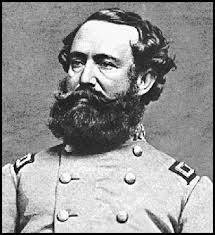In Carolina’s Campaign during the Civil War in February 1865, Confederate commander Wade Hampton started executing captured Union soldiers from General William Tecumseh Sherman’s cavalry.
A clear violation of the rules of war, General Sherman sent a note to Hampton under a truce flag demanding that he stop the executions. A defiant Hampton said he would not stop the killings, so Sherman made captured Confederate soldiers choose lots to see who would be executed in retaliation for the killings done by Hampton. This only happened once, reports said, since the Union soldiers could not accept the practice.*
As for Hampton, he survived the Civil War, lived another 37 years, and, true to form, became a white supremacist terrorist leader, a governor of South Carolina, and a U.S. Senator. He died at age 84. A statue of him was erected on the grounds of the state capital, and numerous streets were named after him throughout South Carolina, where the Confederacy was founded. It is no coincidence that South Carolina was the first state that voted to secede from the Union on Dec. 20, 1860. Hampton’s post-Civil War life showed that Reconstruction was barely started and never completed.
Bad Guys Do Win
Today, we see bad guys in government, corporate life, business, and even in the clergy abusing others to various degrees and getting away with it. There is no immediate retribution, and the abuses go on for decades and, in some cases, entire lifetimes.

When we see it as systematic, it darkens our views about justice, right and wrong, and power abuses. This has happened in every culture throughout history, regardless of race, religion, nationality, and class status.
Good people (and you know who you are) stand apart from the tainted and stand up for what’s right. The problem is that too many people intentionally look away and avoid atrocities. Some have reasons to avoid injustice, but many take the easy way out and feign blindness.
All religions have at least one teaching that says individuals must use their power to do the right thing. You don’t need any special permission to use it. Just take action. Use the power that resides in you.
*Sherman: Lessons in Leadership, by Steve Woodworth, Palgrave Macmillan, 2009, Page. 162











